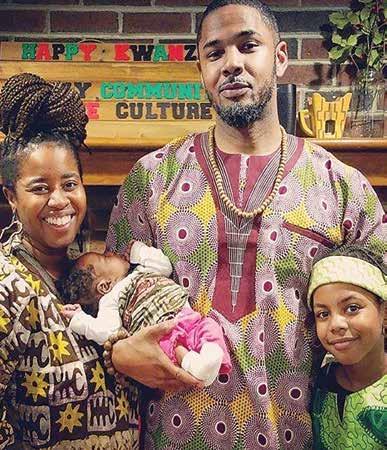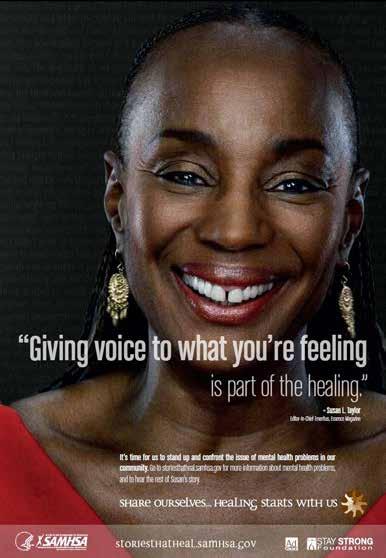NATIONAL Kwanzaa – Lifting Spirits in a Pandemic
Curtis Knowles WI Contributing Writer
With the end of the year nigh, and a ravenous plague surging throughout the world, people have turned to their end of year festivities to lift spirits. Kwanzaa is a celebration that brings people together. The observance of Kwanzaa this year will be disrupted due to the pandemic. Being a community-based holiday, the social restric-
tions have caused many to take a different approach to celebrating the holiday. One of the core values of Kwanzaa is the celebration of community. The disruption of this core element is readily felt by those that celebrate the holiday. Kelly Davidson, owner of Kelly Maven Media has celebrated Kwanzaa for 18 years. She normally goes to Kwanzaa events held in and around the DMV area. This year however is not the case
as restrictions prohibit large gatherings of people. When asked what Kwanzaa meant to her, Davidson said the holiday is “a center to where people can base their lives in. Kwanzaa is the foundational principle that I want to live by and want to raise my family by.” Organizations that attempt to host Kwanzaa celebrations have had to face a new set of challenges due to the pandemic. Substantial Arts and Music, a multimedia organization was planning on hosting their 2nd annual Kwanzaa celebration, that had to be made virtual due to the pandemic. This had led to a damper on participation in the celebration. Stan “Substantial” Robinson, a co-founder of Substantial Arts and Music said “doing things in that space (virtual) can be very different from doing things in person. Kwanzaa contains elements of call and response and involving people in the space. It is very much an interactive holiday.” The organization however has pointed out ways in which they can still hold the celebration as
President-Elect Biden Picks Black Man to Head U.S. EPA Stacy M. Brown WI Senior Writer President-elect Joe Biden continues to honor his campaign pledge for a diverse staff and cabinet. On Thursday, Dec. 17, Biden picked Michael Regan, a Black man, to lead the Environmental Protection Agency. If confirmed, the historically Black North Carolina Agricultural and Technical State University graduate would be the first African American to lead the EPA. Regan, who currently heads North Carolina’s environmental agency, also holds a master’s degree from George Washington University. “Boom,” exclaimed Deitra Matthews, who holds an MPA in Public Policy. “An HBCU grad.” North Carolina Gov. Roy Cooper, who hired Regan for the state job, told the Associated Press on Wednesday that Regan was “a consensus builder and a fierce protector of the environment.” “He’s been part of a strong, diverse cabinet in North Carolina. And if the
president-elect selects him, I have no doubt that he will do the same kind of job for our country,” Cooper stated. Regan previously spent a decade at the federal EPA, including managing a national program for air-pollution issues. He has served as an associate vice president for climate and energy issues at the Environmental Defense Fund advocacy group and as head of his own environmental and energy consulting firm. According to his biography, Regan also founded M. Regan & Associates, LLC, a firm dedicated to helping organizations find transformational solutions to complex energy, environmental and economic challenges. Regan has served on several boards and commissions focused on pollution control and environmental protection. They include the UNC School of Law Center for Climate, Energy, Environment and Economics, Green 2.0, N.C. Commission on Global Climate Change, N.C. Energy Policy Council and the Executive Steering Committee of Envision Charlotte.
16 - DECEMBER 24 - 30, 2020
5 Michael Regan (Courtesy photo)
A native of Goldsboro, N.C., Regan has a bachelor’s degree in Earth and Environmental Science from N.C. Agricultural & Technical State University and a master’s degree in Public Administration from George Washington University. Regan and his wife, Melvina, and their son, Matthew, live in Raleigh. WI @StacyBrownMedia
5 Stan and Rachelle Robinson, co-founders of Substantial Arts and Music participate in Kwanzaa which begins Dec. 26. (Courtesy photo/Kelly Davidson Maven Media)
well to reach a larger audience. “The great thing about this being a cultural program is that no event will be the same. Everybody brings in their own spice… their own vision” says Rachelle Etienne-Robinson. Mrs. Etienne-Robinson is also a co-founder of Substantial Arts and Music. With everything being in a virtual space to coincide with pandemic restrictions, people are still finding ways to connect and celebrate the people and events they hold dear. The holiday of Kwanzaa still has its patrons that are willing to keep the tradition alive and spread it to others as well. The holiday was created by Maulana Ndabezitha Karenga in 1966 to be the first pan-African holiday. The holiday pulls from African traditions of the harvest. The name stems from the Swahili phrase “Matunda ya Kwanza” which roughly translates to the “first fruits of harvest”. The holiday is celebrated between Dec. 26 through Jan 1. The celebration is centered around Nguzo Saba, which means seven principles of African Heritage. Each value is celebrated on a different day. A Kinara (Swahili for candelabra) holds seven candles, three red, one black, and
three green. The black candle in the center is burned first with a subsequent red or green candle burned each night until all seven are lit. The seven principles are; Umoja(Unity), Kujichagulia(Self-determination), Ujima(Collective Work), Ujamaa(Cooperative Economics), Nia(Purpose), Kuumba(Creativity), and Imani(Faith). On the sixth night, the Karamu Ya Imani (Feast of Faith) is held. Dishes for Kwanzaa stems from the entire African diaspora. Some symbolic foods are the Mazoa, or the fruits and vegetables symbolizing the bounty of the harvest. The Muhindi or ears of corn which represent the number of children still present in the home. The Kikombe Cha Umoja is a special chalice used in the Tambiko ritual of honoring the ancestors. The final night is an exchange of gifts. The gifts are usually based on the principles of the celebration. The celebration originated in the 1960s and serves as a pathway for African Americans to reconnect with their origins and selves. The traditions still hold true as even a global pandemic as not stopped those that wish to celebrate with their community. WI
THE WASHINGTON INFORMER / WWW.WASHINGTONINFORMER.COM








